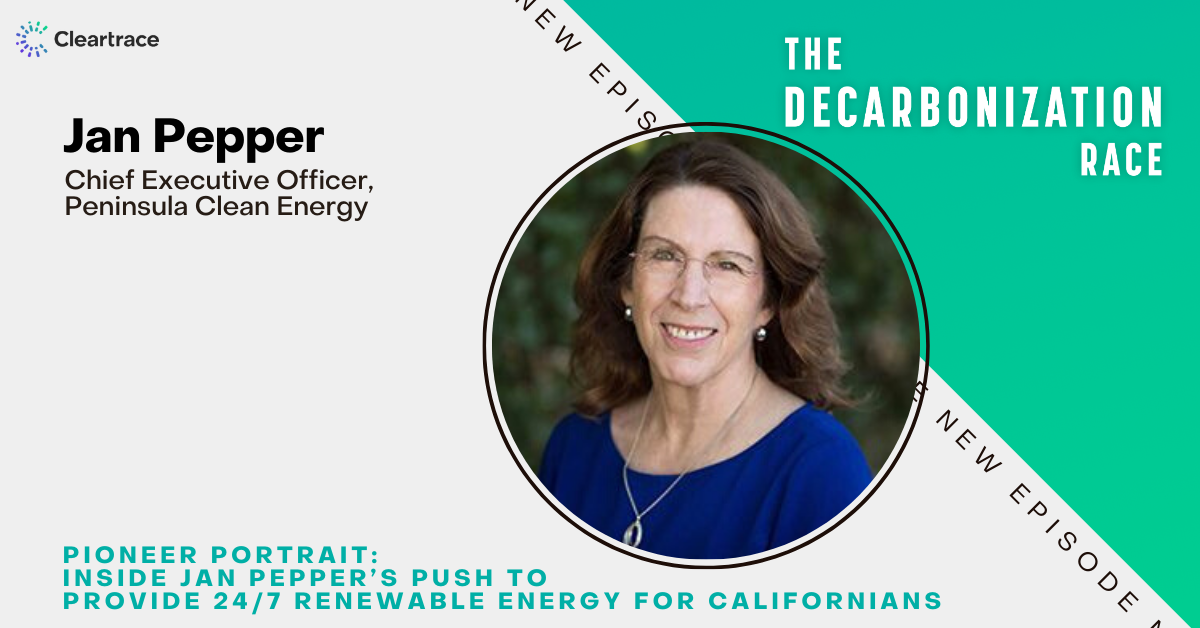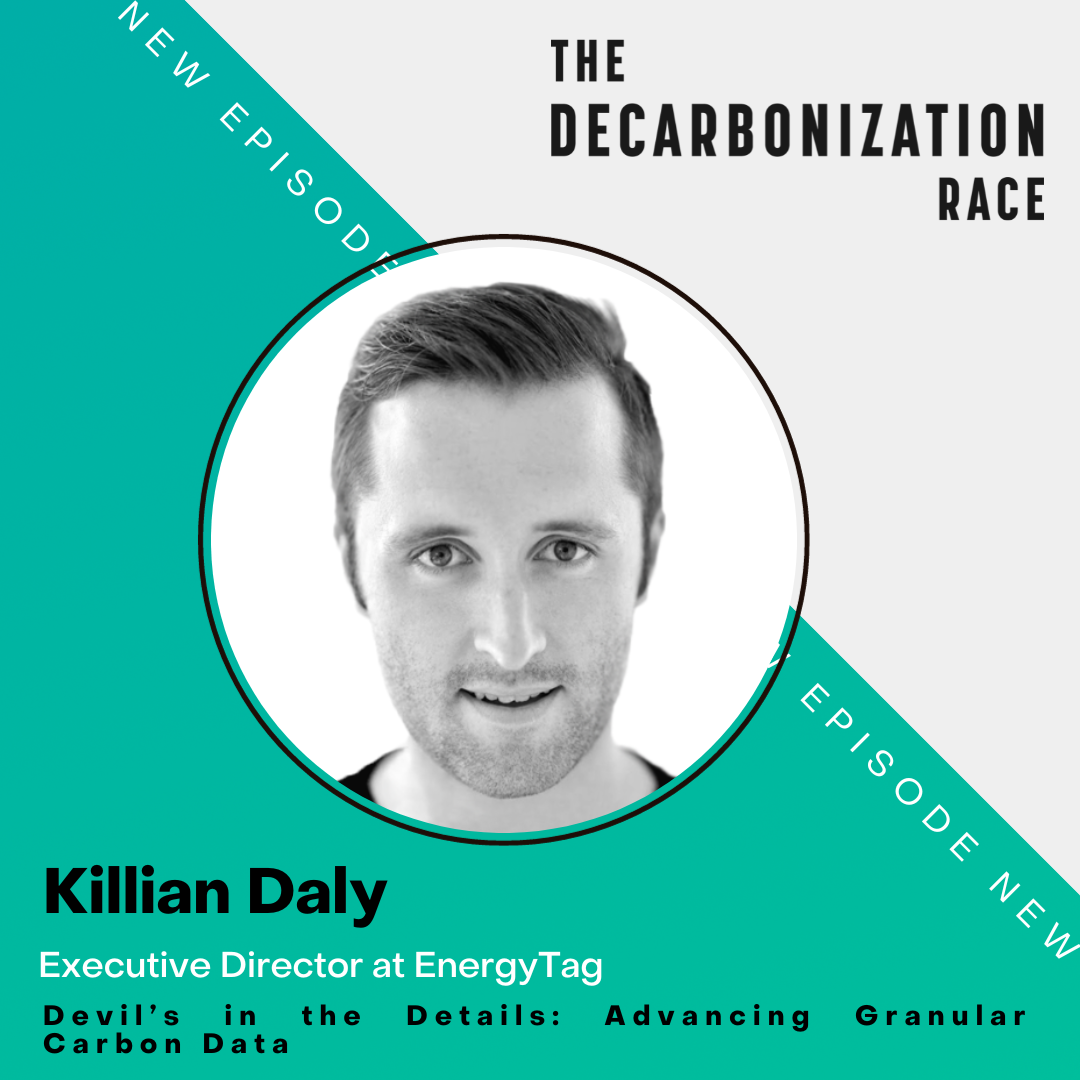Pioneer Portrait: Inside Jan Pepper’s Push to Provide 24/7 Renewable Energy for Californians
Clean energy doesn't have to cost more. California electricity supplier Peninsula Clean Energy (PCE) is charting a path to supply 24/7 renewable electricity in northern California that is competitive today and less expensive in the long run compared to typical utility electricity offerings. How is the company getting there? On this episode of The Decarbonization Race, renewable energy pioneer and PCE CEO Jan Pepper joins Lincoln to explain it all, including the genesis of PCE’s ambitious strategy to supply 100% renewable energy matched hourly to its customer base by 2025.

Clean energy doesn’t have to cost more. California electricity supplier Peninsula Clean Energy (PCE) is charting a path to supply 24/7 renewable electricity in northern California that is competitive today and less expensive in the long run compared to typical utility electricity offerings.
How is the company getting there? On this episode of The Decarbonization Race, renewable energy pioneer and PCE CEO Jan Pepper joins Lincoln to explain it all, including the genesis of PCE’s ambitious strategy to supply 100% renewable energy matched hourly to its customer base by 2025. Jan discusses the role community choice aggregators (CCAs) like PCE are playing in putting communities’ priorities first when procuring energy for their customer base, and how PCE is both keeping rates competitive and ensuring long-term stability, compared to offerings that have greater volatility from fuel price swings.
Jan Pepper has over 30 years of energy and utility experience, with a focus on renewable energy contracting and financing. Across her career, she’s founded four energy-related startups, at her company APX she developed and pioneered the first use of renewable energy credits, and her company Clean Energy Markets designed and implemented the successful Solar Renewable Energy Credit (SREC) program for the State of New Jersey. And she’s also had a political career, as both a City Council member and mayor of the city of Los Altos, California. Her expertise has been vital in guiding Peninsula’s sourcing of electricity from different renewable energy and energy storage projects, navigating factors such as price, location, and diversity of supply.
Key Takeaways
- Community choice aggregators (CCAs) provide an alternative for California electricity customers, allowing cities or counties to procure and supply electricity for their residents separately from existing utilities. The CCAs decide the mix of electricity, and deliver it via utility-owned transmission and distribution networks.
- PCE is a “public agency startup,” focused on supplying renewable energy and matching supply to demand on an hourly basis. Their goal is to supply 100% renewable energy, and in the process ensure price stability via long-term contracts, avoiding the volatility from fossil fuel prices. Because Peninsula procures from a range of different sources and technologies, the utility is able to provide electricity supply at a competitive rate and ensure a diverse portfolio.
- PCE’s ambitious strategy is to supply 100% renewable energy matched hourly to its customer base by 2025. The utility has already procured enough solar, wind, geothermal and hydropower resources to cover 75% of its 24/7 strategy by 2025, and will procure additional capacity to reach 99% by the end of 2025. This is providing a blueprint for other utilities to decarbonize, evaluate their modeling, and dispatch storage.
Resources
- U.S. Environmental Protection Agency on Community Choice Aggregation programs
- Our Energy Minute segment from earlier this season to go deeper on Peninsula Clean Energy’s 100% renewable energy strategy and how it’s progressed
- Peninsula Clean Energy white paper, “Achieving 24/7 Renewable Energy by 2025”










